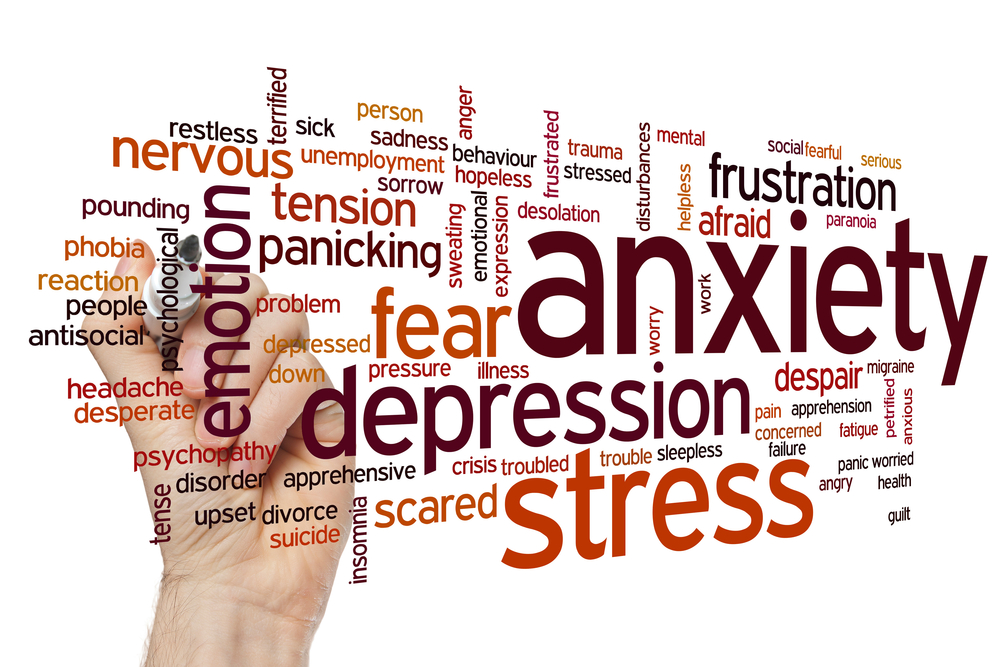How to Overcome Anxiety?

It is very normal to feel worried and anxious in a difficult situation like a job interview or a tough exam. Once the situation is over, the person feels much better and calmer. Sometimes the feeling of fear or panic remains even after the situation is over. This is when anxiety becomes a serious problem. Anxiety is a feeling related with fear, panic and worry. Anxiety disorder can alter the behavior of a person. A person can feel anxious, panicky and fearful in difficult situations of life and can find it difficult to come out of the situation. A person with anxiety gets very depressed and finds it very difficult to sleep, eat and even concentrate. So, how to overcome anxiety?
Once there is a clear understanding of what is causing anxiety, it is easy to control the disorder and the live a normal life. Anxiety is the body’s natural defense mechanism that awakes when a person feels stressed and threatened in a difficult condition.
Signs and Symptoms of anxiety
- Panic feeling, fear and uneasiness
- Sleeping Problems
- Shortness of breath
- Dry Mouth
- Nausea
- Muscle Tension
Understanding the Causes of Anxiety
There is no single cause for the anxiety disorder. Various factors are responsible for this. Family history, personality factors, ongoing stressful events, physical health problem, etc. are some of the major causes of anxiety disorder in a person.
Types of Anxiety disorders
Anxiety disorders can be classified into six major types
Generalized Anxiety Disorder (GAD)
Generalized Anxiety Disorder (GAD) is a chronic disorder that is generally characterised by long lasting anxiety, excessive worrying about a particular situation or an event that is non-specific. GAD patients feel afraid and often feel worried about everyday things such as health, money, family, etc. Patients feel so worried about the disaster and failure that it interferes with their daily functionality. Sometimes even the thought of getting through the day creates anxiety.
Panic disorder
Panic disorder is a situation when the response to a fear is out of proportion and often is not threatening. The patient, over the time, develops fear of having another panic attack which can affect his/her daily activities. It can be characterised by the sudden attacks of fear and nervousness. It is also accompanied with sweating and increased heartbeat.
Obsessive-compulsive disorder (OCD)
Obsessive-compulsive disorder is a situation in which the thoughts are uncontrollable and become repetitive. It is a behavior which is ritualized, where the patient feels a need to perform. The patient who is suffering from this anxiety disorder recognizes that his/her thoughts are compulsive and obsessive. But still the patient is not able to come out of the situation.
Phobia
Phobia is a situation in which the patient has unrealistic or exaggerated fear for a specific activity or an object. The activity or the object has little or no danger at all. The most common phobia includes the fear of animals, fear of height and fear of flying. A patient may go to extreme lengths to avoid the fear but unfortunately it only strengthens the phobia.
Social anxiety disorder
Social anxiety disorder is a situation where a patient fears about certain social activities or situations. This disorder can also be related with extreme shyness. Stage fright is most common symptom of this type of disorder.
Post- traumatic disorder:
It is a situation where extreme anxiety occurs after a traumatic event or life threatening event has taken place. Flashbacks of the past event, hyper vigilance, avoiding reminder situations are some of the symptoms of this anxiety disorder.
Manage Anxiety
Not everyone who worries about anxiety has anxiety disorder. One can be anxious because of demanding schedule, pressure of work and lack of sleep.
Even if the lifestyle in unhealthy, one can feel anxious. But if you feel that worrying is not going away and becomes constant, take some time to evaluate these points.
- Do you take out some time every day to relax and have fun?
- Are you getting the emotional support you need to keep going?
- Do you have too many responsibilities to handle?
- Are you taking good care of your body?
If your anxiety level is high, you should try to reduce the level and get back to normal life. You can leave few responsibilities. If you’re feeling isolated, you can share your worries.
Self-help tips on how to overcome anxiety
Share and Connect with others: Isolation sets the stage for anxiety. Reduce your levels of anxiety by sharing your worries to close ones. Make sure you’re meeting your friends on a regular basis. You can also join a support and help group.
Practice Relaxation: Relaxation Techniques like meditation, muscle relaxation and deep breathing can reduce the symptoms of anxiety. These techniques increase the relaxation feeling and emotional well-being.
Regular Exercise: Exercise is a natural buster of stress and helps in reducing anxiety. 30 minutes of exercise can help in achieving the maximum benefits.
Good and enough sleep: Lack of sleep can increase the level of anxiety. Try to get at least 7-8 hours of sleep every day. Smart sleeping habits can reduce the level of stress and anxiety.
Limit Caffeine and Alcohol: If you are suffering from anxiety, you should reduce the level of caffeine intake per day. Alcohol must be reduced as well.
Stay Calm: Worrying is a state of mind and anyone can escape this. Strategies like challenging the worrying thoughts and learning to accept the uncertainties can widely reduce anxiety.
The best way to how to overcome anxiety is to beat the disorder on your own. Any type of anxiety disorder can be successfully controlled if self- help strategies are successfully implemented. If worries, fear and anxiety are still causing a lot of distress and disrupting your daily life, it is important to seek medical help.














